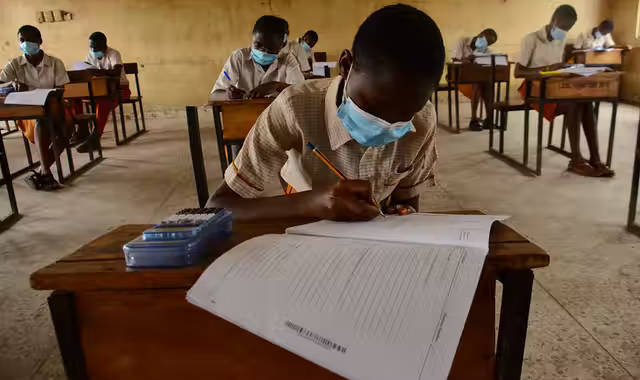
The ManicaPost

Samuel Kadungure
Senior Reporter
Thirty-three schools in Manicaland Province recorded a zero percent pass-rate during the 2021 Ordinary Level ZIMSEC examinations, a development that has raised concern among stakeholders, with some calling for investigations on the causes of such a dismal performance.
During 2020 exams, Manicaland had 45 secondary schools with a zero percent pass-rate, which means the 2021 performance was actually an improvement.
Secondary education is a significant stage in every student’s academic life and a province with a poor pass-rate will likely have a shortage of professionals to run its affairs in the future.
The poor results are also a stain on the country’s stellar academic performance.
With a national literacy rate of 92.4 percent, Zimbabwe enjoys one of the highest rates in Africa. Manicaland Deputy Provincial Education Director (Secondary Schools), Mr Charles Muganhu confirmed that 33 schools in Manicaland recorded a zero percent passrate at Ordinary Level last year.
Mr Muganhu said Manicaland had 24 490 candidates who sat for the 2021 ZIMSEC November examination, out of which only 27,28 percent attained five Ordinary Level subjects and above.
This means a total of 17 757 candidates failed to make it, thereby raising serious questions over the efficiency of the province’s education delivery system.
“We had 6 735 candidates with five subjects and above, which represents about 27, 28 percent of the total number of candidates (24 490) who sat for the ZIMSEC November 2021 examinations.
“The majority of our learners, 17 757, did not make it, and this has been the trend over the past few years. Our system encourages everyone to proceed into secondary school, but not everyone makes it,” said Mr Muganhu.
He said underperforming learners often lose self-confidence and are more likely to fail again if not properly rehabilitated.
Mr Muganhu spoke about the symbiotic correlation between a child’s health and their academic potential.
Already, fear abound that the affected children, if not rehabilitated and re-admitted into the education system, they may engage in health-impairing behaviours like adolescent-smoking, drinking and drug abuse.
“It is a complicated matter – we have 33 secondary schools with a zero percent pass-rate, and as a result a comprehensive approach is needed to evaluate the situation and intervene so as to eradicate the zero percent pass-rate cancer.
“Most of the affected schools are satellite schools. They are still upcoming and are confronted with serious infrastructural and operational challenges. Some of them are not yet registered, and do not have substantive administrative structures which means that they are manned by ordinary teachers. This is unacceptable because parents are not getting the expected returns on their investments after a four-year cycle,” said Mr Muganhu.
He also blamed Covid-19 for the poor performance.
He said since the onset of the Covid-19, children have dropped out of school, while some are lagging behind due to lost learning time.
The situation has been exacerbated by food insecurity and the emotional health deterioration brought about by the pandemic.
All these factors, he said, have a serious impact on the overall performance of schools.
However, lack of motivation and perseverance, lack of preparation and effort, poor time management, truancy, inattentiveness in classrooms, lack of commitment to study, psychological problems, teacher behaviour, poor teaching methods, as well as external, environmental and contextual problems also feature prominently on the reasons behind the poor performance of some learners.
Mr Muganhu said learners usually experience academic difficulties that have both academic and non-academic characteristics which warrant different strategies of intervention.
“We are visiting each of these schools to see how best we can help them and ultimately eradicate the zero percent pass-rate. We cannot prescribe a one-size-fit-all solution if we are to increase our pass-rate.
“In fact, our vision as a ministry is a zero tolerance to zero percent pass-rates. It means that as a ministry we must provide quality, relevant and wholesome education which makes sure that all our learners pass, and there is no school that should record a zero percent pass-rate. After the tour, we will then implement befitting strategies to eradicate the zero percent pass-rate.
“We expect our teachers to put extra tutorial support, learners to pull up their socks and commit to studying, while parents play their part at home to ensure that every child excels,” said Mr Muganhu.
Zimbabwe Rural Teachers’ Union president, Mr Martin Chaburumunda said most of the affected schools have no learning infrastructure and textbooks, thereby forcing teachers to seriously compromise on the quality of education delivered to students.
National Association of Secondary Heads president, Mr Arthur Maphosa said the poor performance is a reflection of the impact of Covid-19.
“The lockdown started on March 24, 2020, and last year students only had two terms of learning, meaning that the majority of the students who were in Form Three when the pandemic hit us did not have enough time to learn despite Government’s efforts to introduce online and radio lessons.
“The children were not used to this way of learning, just like their teachers. The majority of the affected school are in the remote areas where internet connectivity is poor or non-existent, hence these children did not learn at all during the national lockdown,” said Mr Maphosa.



